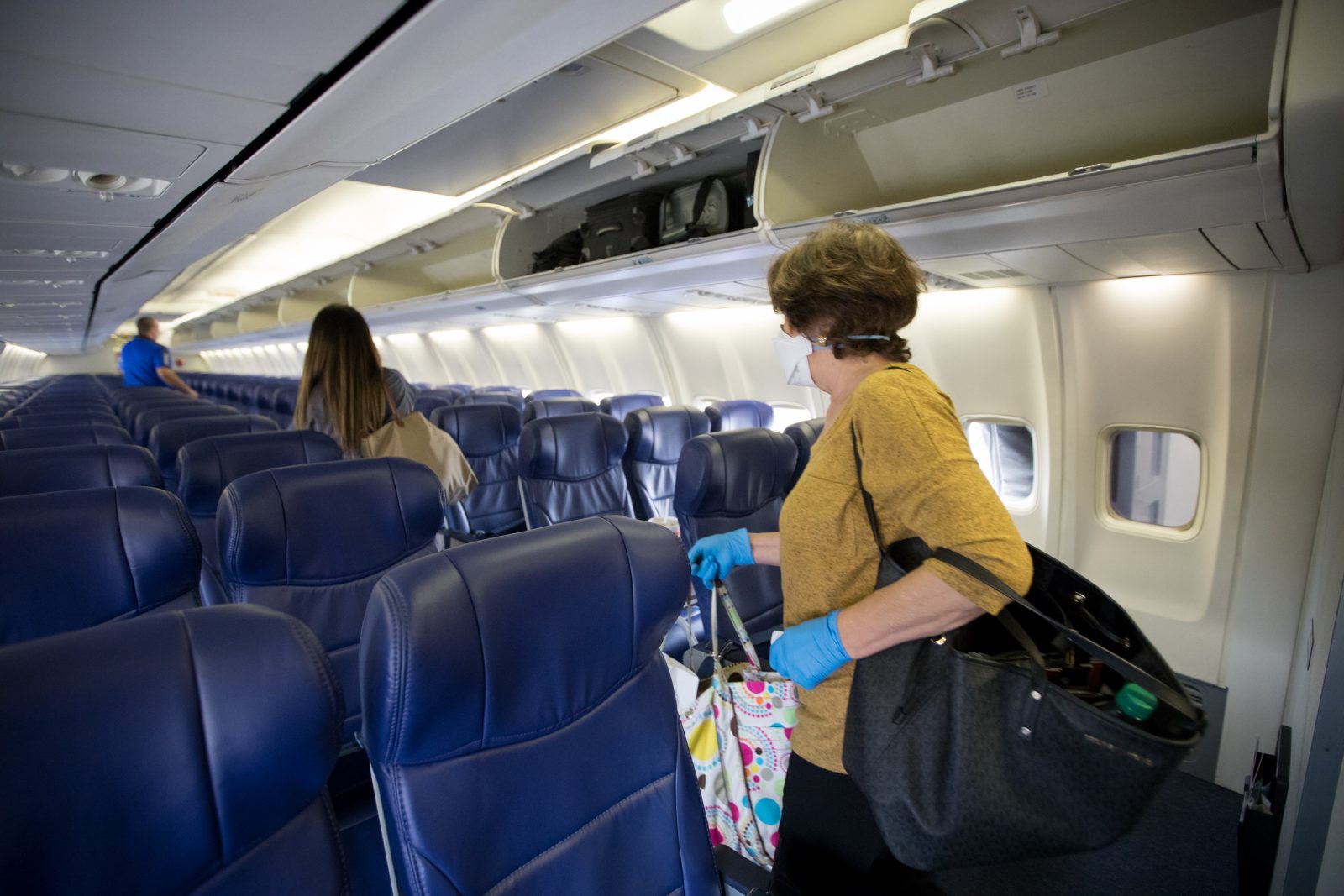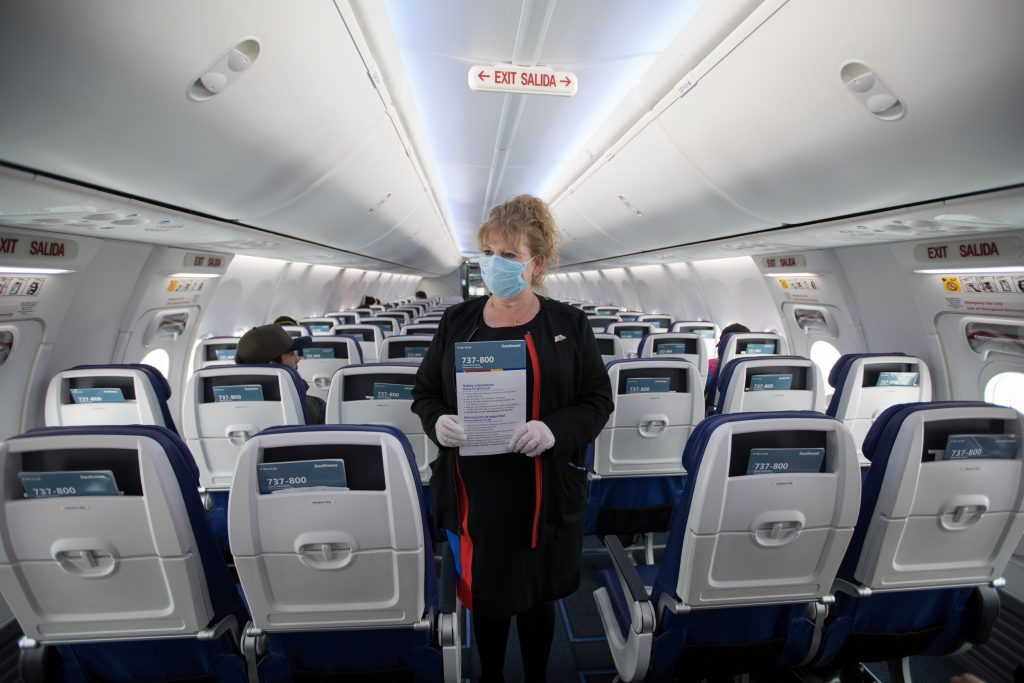
Despite introducing mandatory face mask rules that are designed to compel passengers to wear some form of facial covering during their flight, the big three U.S. airlines have told flight attendants and pilots that they don’t actually have any power to enforce the policy. Leaked memos sent to staffers at American, Delta and United Airlines instead urge flight crew to “encourage” the wearing of face masks should passengers refuse to comply.
While gate agents will be able to deny boarding to passengers who refuse to wear a face mask, once they are onboard flight attendants and pilots have been asked to take a more “lenient” approach towards customers who take off their face mask.

“Once onboard and off the gate, the face-covering policy becomes more lenient. The flight attendant’s role is informational, not enforcement, with respect to the face-covering policy,” a memo sent to pilots at American Airlines reads. The memo continues:
“Bottom line to the pilots: a passenger onboard your aircraft who is being compliant with the exception of wearing a face covering is NOT considered disruptive enough to trigger a Threat Level 1 response,” (ie. a disruptive passenger incident which could result in an aircraft diverting to the nearest available airport in order to be met by law enforcement).
Both Delta and United Airlines have required passengers to wear face masks since May 4, while American Airlines introduced a similar policy which took effect on May 11. All three airlines encourage passengers to wear face masks or a face covering during their entire journey but they have no power to make the wearing of face masks mandatory at check-in counters or gate areas.
There are some exceptions for small children, as well as passengers with certain medical conditions that mean they can’t wear a facial covering or can’t put one on themselves.
A spokesperson for American said they would enforce the rule during boarding at the gate area and announcements would be made onboard to remind passengers of the policy. Meanwhile, United said flight attendants would use their “deescalation skills” to manage situations involving passengers refusing to wear a mask.
Last week, the International Air Transport Association (IATA) backed an industry-wide set of measures to respond to the COVID-19 pandemic which would include the mandatory wearing of face masks by crew and passengers. Many airlines around the world have responded to the crisis with similar policies but internationally agreed rules remain a work in progress.
The Association of Flight Attendants (AFA-CWA), which represents 50,000 flight attendants at 20 U.S. airlines including United, is becoming increasingly frustrated with the apparent unwillingness of the federal government to introduce emergency safety rules to deal with the threat of COVID-19 onboard airplanes.
“…the safety of passengers and crew should not depend solely on the judgment of individual airlines,” AFA wrote in a letter to a Senate committee last week. “The Administration should put in place an emergency rule to mandate masks for crew,” the letter continued.
“We need social distancing policies, we need deep-cleaning policies, we need these face-covering policies. And it needs to be directed and coordinated by our federal government,” demanded AFA president, Sara Nelson on Tuesday evening.
The FAA, however, says that while it will continue to offer “aviation expertise” to airlines, there was no plan as yet to introduce emergency rules that would make the wearing of face masks a legal requirement.
Over the weekend, an industry trade body that represents several U.S. airlines including American, Delta and United called for the TSA to take on responsbility for temperature checking passengers prior to their flight. “Temperature checks also will provide additional public confidence that is critical to relaunching air travel and our nation’s economy,” a statement for Airlines 4 American explained.
“As all screening processes for the traveling public are the responsibility of the U.S. government, having temperature checks performed by the TSA will ensure that procedures are standardized, providing consistency across airports so that travelers can plan appropriately.”
Mateusz Maszczynski honed his skills as an international flight attendant at the most prominent airline in the Middle East and has been flying ever since... most recently for a well known European airline. Matt is passionate about the aviation industry and has become an expert in passenger experience and human-centric stories. Always keeping an ear close to the ground, Matt's industry insights, analysis and news coverage is frequently relied upon by some of the biggest names in journalism.







